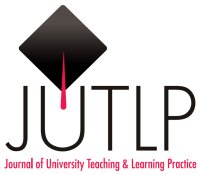| Résumé: | This article explores the potential of compassion and self-compassion as pedagogical concepts for allied health education in universities. Compassion and self-compassion have long histories in philosophy and religion. They are argued as essential to transformational learning, and for cultivating the civic-mindedness and moral dispositions necessary for ethical conduct in a complex multicultural and diverse world. Yet, the neoliberal transformation of universities has created environments characterised by competition and individualism, negatively affecting the well-being of students and educators. Under such conditions, a return to compassion and self-compassion as guiding principles is warranted. In this article, we address the question: What can a pedagogy of compassion and self-compassion bring to the teaching and learning context of allied health education in a university setting? We argue that there is strong evidence that compassion and self-compassion improve learning and the student experience, which can support critical thinking, emotional awareness, and advanced interpersonal skills required in allied health professions. [Author abstract]
|
|---|


